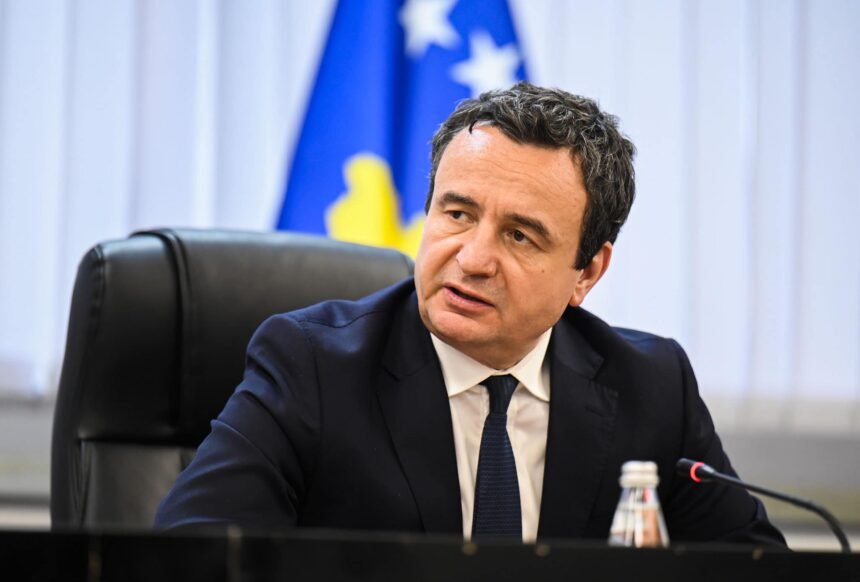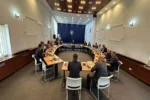Acting Prime Minister of Kosovo and Vetëvendosje Movement (LVV) leader, Albin Kurti, is hosting a meeting with leaders of other political entities today, Saturday, in an effort to find consensus for the constitution of the Assembly following the February 9 parliamentary elections.
Representatives from all major Albanian political parties, as well as some minority parties, are participating in the meeting. The Assembly remains unconstituted as political parties have not agreed on LVV’s nominee for the Speaker position—as the party that won the most votes—or on changing the voting method from open to secret.
Constitutional Court’s Mandate and Conflicting Interpretations
Today’s meeting takes place after the Constitutional Court of Kosovo issued a ruling on Thursday, obliging deputies to finalize the constitution process by no later than July 26. Deputies must elect the Speaker and five Deputy Speakers to formally constitute the new Assembly. Only after the Assembly is constituted can a new Government be formed.
However, political parties have offered differing interpretations of the Constitutional Court’s decision immediately after its publication. Deputies of the new legislature have held 38 sessions since April 15 in an attempt to constitute the Assembly, but without success. For parties that were in opposition in the previous Assembly, the nominated candidate for Speaker is a divisive figure, and the proposed change in voting method is deemed unconstitutional.
Expert Legal Opinion
Enver Hasani, former President of the Constitutional Court of Kosovo and current professor of Law and International Relations at the University of Pristina, stated in an interview with Radio Free Europe that the Constitutional Court’s judgment clearly confirmed that the procedure for constituting the Assembly is determined by the Constitution, the Assembly’s Rules of Procedure, and parliamentary practices.
“This means that what was done by Mr. [Avni] Dehari [the presiding officer of the constitutive session] is entirely unconstitutional. It means that there can be no deviation from the agreement reached on April 8 [the meeting of political parties to prepare for the constitutive session],” Hasani said, noting that no decision for secret voting was made at the April 8 meeting.
Professor Hasani emphasized that the Constitutional Court ruled on the entirety of the Assembly’s constitution procedure, including the form of voting. “It decided on the entire procedure and indicated that the procedure must be the same, as stated in the Rules of Procedure, the Constitution, and as has been decided after every parliamentary election in Kosovo to date. The Court stated this. And never until today has there been a change to the agenda by the presiding officer, nor has there ever been a secret vote,” he concluded.







